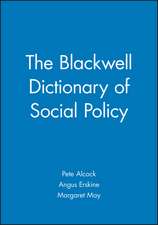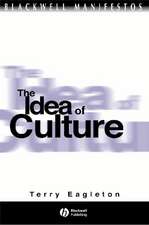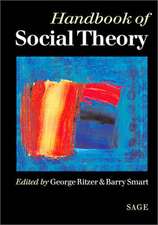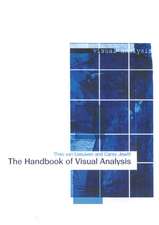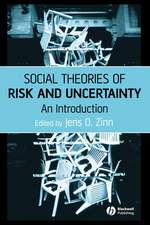The Postemotional Bully: SAGE Swifts
Autor Stjepan Mestrovicen Limba Engleză Hardback – 20 ian 2015
Thorstein Veblen defined the predatory barbarian as the social type, enshrined by modernity, who prefers to use force over peacable means to achieve ends. On the other extreme, Marcel Mauss wrote about the spirit of the gift and its obligations - to give, to receive, and to reciprocate - as the fundamental basis of social life. Yet, he argued that the spirit of modernity was disappearing with the progress of modernity.
Mestrovic traces this fundamental opposition between barbaric force or bullying versus benign obligation that is the spirit of the gift through a host of modernist and postmodernist thinkers and theories. He introduces the concept of the 'postemotional bully' as an alternative to both of these major bodies of social theory. The postemotional bully, as a social type, is fungible, beset by screen-images on media and social media that are isolating, and is at the mercy of the peer-group.
Case studies focus on bullying and hazing, specifically the cases of an American solider who committed suicide in Afghanistan, instances of torture at Abu Ghraib, and the murder of a 23-year-old African-American inmate in a Southern state prison in the US.
Din seria SAGE Swifts
-
 Preț: 425.65 lei
Preț: 425.65 lei -
 Preț: 426.43 lei
Preț: 426.43 lei -
 Preț: 425.76 lei
Preț: 425.76 lei -
 Preț: 426.10 lei
Preț: 426.10 lei -
 Preț: 426.59 lei
Preț: 426.59 lei - 22%
 Preț: 358.90 lei
Preț: 358.90 lei -
 Preț: 246.38 lei
Preț: 246.38 lei -
 Preț: 246.66 lei
Preț: 246.66 lei -
 Preț: 408.59 lei
Preț: 408.59 lei -
 Preț: 425.39 lei
Preț: 425.39 lei -
 Preț: 426.52 lei
Preț: 426.52 lei -
 Preț: 485.13 lei
Preț: 485.13 lei - 15%
 Preț: 512.67 lei
Preț: 512.67 lei - 15%
 Preț: 511.83 lei
Preț: 511.83 lei - 5%
 Preț: 472.05 lei
Preț: 472.05 lei - 22%
 Preț: 372.16 lei
Preț: 372.16 lei - 15%
 Preț: 511.01 lei
Preț: 511.01 lei -
 Preț: 468.37 lei
Preț: 468.37 lei - 22%
 Preț: 358.70 lei
Preț: 358.70 lei - 22%
 Preț: 358.26 lei
Preț: 358.26 lei - 15%
 Preț: 422.36 lei
Preț: 422.36 lei -
 Preț: 481.49 lei
Preț: 481.49 lei - 22%
 Preț: 371.74 lei
Preț: 371.74 lei - 15%
 Preț: 466.03 lei
Preț: 466.03 lei - 15%
 Preț: 448.92 lei
Preț: 448.92 lei - 18%
 Preț: 685.93 lei
Preț: 685.93 lei -
 Preț: 115.47 lei
Preț: 115.47 lei -
 Preț: 123.24 lei
Preț: 123.24 lei - 22%
 Preț: 358.26 lei
Preț: 358.26 lei
Preț: 466.52 lei
Preț vechi: 548.84 lei
-15% Nou
Puncte Express: 700
Preț estimativ în valută:
89.27€ • 93.54$ • 73.80£
89.27€ • 93.54$ • 73.80£
Carte tipărită la comandă
Livrare economică 11-25 aprilie
Preluare comenzi: 021 569.72.76
Specificații
ISBN-13: 9781473907805
ISBN-10: 1473907802
Pagini: 136
Dimensiuni: 148 x 210 x 10 mm
Greutate: 0.29 kg
Ediția:1
Editura: SAGE Publications
Colecția Sage Publications Ltd
Seria SAGE Swifts
Locul publicării:London, United Kingdom
ISBN-10: 1473907802
Pagini: 136
Dimensiuni: 148 x 210 x 10 mm
Greutate: 0.29 kg
Ediția:1
Editura: SAGE Publications
Colecția Sage Publications Ltd
Seria SAGE Swifts
Locul publicării:London, United Kingdom
Recenzii
Stjepan Mestrovic has always been worth reading, and here is Mestrovic at his very best. Written with passion and principle, this book builds on the sociological tradition to explore the darkness of these postemotional times. A shining example of sociology as it should be - and so rarely is.
Stjepan Mestrovic presents a thought-provoking and critical piece of cultural sociology on the contemporary social issue of bullying rooted in the everyday but with recognition of the influential belief of historical forms of barbarism. He draws many vivid examples from social media, popular culture and the distressing but his close observations from the fallout and confrontations of the Abu Ghraib prison abuses in Iraq. Mestrovic keenly frames bullying as part and parcel of the paradoxes of a postemotional age, society and zeitgeist comprised and sustained by interpersonal estrangement, personal anxiety, and artificial and standardized emotions.
Mestrovic's The Postemotional Bully is a Maussian gift. This deeply intellectual and theoretically informed exploration of the Bully as a universal character-type, shows the deep tie-in between the Modern's transformation of how we experience emotions, and demonstrates Western culture's simultaneous attraction too and fear of the bullying impulse. Through the lens of a wide range of neglected sociologists, philosophers and anthropologists, this work offers-up the first bridge to understand the social and cultural roots of bullying and thus demands from the reading public, a reciprocal obligation to explore, understand and change our own role in coming to understand the bully in us.
Stjepan Mestrovic offers a timely, new perspective for exploring the social problem of bullying. Contrary to the assertion that modern life appeals to the better angels of our nature, Mestrovic observes that modern society has accelerated serious dysfunctional and disruptive human tendencies. The act of bullying is not just carried out by the violent person hiding in the shadows of the classroom, the workplace, the boardroom, or a government office. Mestrovic demonstrates that the act of bullying hides in plain sight in the daily acts of fraud perpetrated within modern society: sham political processes, the abusive manipulation of consumers' emotions by advertisers, peer group opinion that acts like a poltergeist within the machine that is the Internet, the relentless trend to make every person fungible or replaceable, and media saturation that becomes a type of electronic solitary confinement for most people. The Postemotional Bully is a welcome contribution to ongoing debates about the character and future of modern society.
In lay terms, The Postemotional Bully provides a practical and up-to-date application of classical theoretical statements with regards to coercive forms of power in industrialized society. Furthermore, the text exposes how the role of deconstruction and mass emotional manipulation has permeated postmodern culture. As the voice of “postemotional theory”, Mestrovic provides readers with an essential and unique perspective for interpreting a range of human activities from common everyday interactions, world events, and public policy, in order to better discern the proliferation of institutionalized barbarianism and broad and subtle forms of bullying.
Professor Mestrovic is one of the few social scientists who consistently pushes the boundaries of the discipline. With this book, he has once again confirmed his reputation as an original and important thinker.
In this thought-provoking, theoretically dense essay, sociologist Mestrovic seeks to understand and explain the phenomena of bullying and hazing through the lens of what he labels “postemotional social theory.” [...] His theory is informed by a plethora of popular cultural artifacts, and also by empirical studies of high-profile cases of bullying worldwide. The result is an ambivalent gift to the discerning reader: a novel manner in which to better understand the cultural and social roots of these phenomena, but little suggestion or guidance on “what is to be done” to curtail this disturbing trend.
Stjepan Mestrovic presents a thought-provoking and critical piece of cultural sociology on the contemporary social issue of bullying rooted in the everyday but with recognition of the influential belief of historical forms of barbarism. He draws many vivid examples from social media, popular culture and the distressing but his close observations from the fallout and confrontations of the Abu Ghraib prison abuses in Iraq. Mestrovic keenly frames bullying as part and parcel of the paradoxes of a postemotional age, society and zeitgeist comprised and sustained by interpersonal estrangement, personal anxiety, and artificial and standardized emotions.
Mestrovic's The Postemotional Bully is a Maussian gift. This deeply intellectual and theoretically informed exploration of the Bully as a universal character-type, shows the deep tie-in between the Modern's transformation of how we experience emotions, and demonstrates Western culture's simultaneous attraction too and fear of the bullying impulse. Through the lens of a wide range of neglected sociologists, philosophers and anthropologists, this work offers-up the first bridge to understand the social and cultural roots of bullying and thus demands from the reading public, a reciprocal obligation to explore, understand and change our own role in coming to understand the bully in us.
Stjepan Mestrovic offers a timely, new perspective for exploring the social problem of bullying. Contrary to the assertion that modern life appeals to the better angels of our nature, Mestrovic observes that modern society has accelerated serious dysfunctional and disruptive human tendencies. The act of bullying is not just carried out by the violent person hiding in the shadows of the classroom, the workplace, the boardroom, or a government office. Mestrovic demonstrates that the act of bullying hides in plain sight in the daily acts of fraud perpetrated within modern society: sham political processes, the abusive manipulation of consumers' emotions by advertisers, peer group opinion that acts like a poltergeist within the machine that is the Internet, the relentless trend to make every person fungible or replaceable, and media saturation that becomes a type of electronic solitary confinement for most people. The Postemotional Bully is a welcome contribution to ongoing debates about the character and future of modern society.
In lay terms, The Postemotional Bully provides a practical and up-to-date application of classical theoretical statements with regards to coercive forms of power in industrialized society. Furthermore, the text exposes how the role of deconstruction and mass emotional manipulation has permeated postmodern culture. As the voice of “postemotional theory”, Mestrovic provides readers with an essential and unique perspective for interpreting a range of human activities from common everyday interactions, world events, and public policy, in order to better discern the proliferation of institutionalized barbarianism and broad and subtle forms of bullying.
Professor Mestrovic is one of the few social scientists who consistently pushes the boundaries of the discipline. With this book, he has once again confirmed his reputation as an original and important thinker.
In this thought-provoking, theoretically dense essay, sociologist Mestrovic seeks to understand and explain the phenomena of bullying and hazing through the lens of what he labels “postemotional social theory.” [...] His theory is informed by a plethora of popular cultural artifacts, and also by empirical studies of high-profile cases of bullying worldwide. The result is an ambivalent gift to the discerning reader: a novel manner in which to better understand the cultural and social roots of these phenomena, but little suggestion or guidance on “what is to be done” to curtail this disturbing trend.
Cuprins
CHAPTER: 1 THE PROBLEM
Defining bullying
Force versus obligation: Revisiting Marcel Mauss’s The Gift
The forced gift—the connection to bullying
CHAPTER 2: MODERNITY AS A BULLY
Auguste Comte: positivism at war with theology
Charles Darwin, emotions, and cooperation
Durkheim’s application of Darwin’s insights
Ferdinand Tonnies on the extinction of community
Max Weber on the disappearance of charisma
William James and the bullying inherent in vicious abstractionism
The Chicago School of sociology and the movement from primary to secondary groups
David Riesman and the society of sameness
The battle hymn of the lonely crowd
The Buffy television series as the Shakespearean drama of the postemotional age
George Ritzer and the McDonaldization of society
McDonaldization as the postemotionalization of Puritanism
Postemotional charisma
CHAPTER 3: POSTMODERNISM AS NEGATION OF THE GIFT
Deconstruction: tear down, but do not rebuild
Decentering: everything and everyone is marginalized
The Marxist basis for postmodernism
Walter Benjamin: the loss of aura, and simulacra
The postmodern theme of disenchantment
Truths are cut down to size
CHAPTER 4: POSTEMOTIONALISM ILLUSTRATED
Revisiting David Riesman and Marshall McLuhan on oral, written, and screen image societies
Postemotionalism in Dostoevsky’s “The Grand Inquisitor”
Dostoevsky’s Notes From the Underground
The narrative in the film, Idiocracy, as an example of postemotional society
The pharmaceutical control of emotions in The Giver and Equilibrium
CHAPTER 5: ABU GHRAIB AND POSTEMOTIONAL SOCIETY
The digital photographs, or screen image element
The postemotional carry-over of Zimbardo’s theory
Postemotional soldiers as “fungible assets”
The lawyers as fungible assets, and postemotional law
The postemotional smile
Holding back emotions, and reliance upon techniques
Postemotional manipulation
The scripted, postemotional society
CHAPTER 6: DRIVEN TO SUICIDE BY BULLYING
Immediate desiccation of emotional import
Disavowal by Johnny’s parents
Postemotional suicide prevention
Definition of hazing
What is the conduct of corrective training?
Jury selection: over as soon as it started
Racial slurs postemotionalized into nicknames and terms of endearment
The social disorganization at the outpost
CHAPTER 7: BEATEN TO DEATH
Postemotional groupthink
The dysfunctional social system that will not self-correct
Postemotional anomie
The postemotional panopticon
CHAPTER 8 CONCLUSIONS: WHERE DO WE GO FROM HERE?
Defining bullying
Force versus obligation: Revisiting Marcel Mauss’s The Gift
The forced gift—the connection to bullying
CHAPTER 2: MODERNITY AS A BULLY
Auguste Comte: positivism at war with theology
Charles Darwin, emotions, and cooperation
Durkheim’s application of Darwin’s insights
Ferdinand Tonnies on the extinction of community
Max Weber on the disappearance of charisma
William James and the bullying inherent in vicious abstractionism
The Chicago School of sociology and the movement from primary to secondary groups
David Riesman and the society of sameness
The battle hymn of the lonely crowd
The Buffy television series as the Shakespearean drama of the postemotional age
George Ritzer and the McDonaldization of society
McDonaldization as the postemotionalization of Puritanism
Postemotional charisma
CHAPTER 3: POSTMODERNISM AS NEGATION OF THE GIFT
Deconstruction: tear down, but do not rebuild
Decentering: everything and everyone is marginalized
The Marxist basis for postmodernism
Walter Benjamin: the loss of aura, and simulacra
The postmodern theme of disenchantment
Truths are cut down to size
CHAPTER 4: POSTEMOTIONALISM ILLUSTRATED
Revisiting David Riesman and Marshall McLuhan on oral, written, and screen image societies
Postemotionalism in Dostoevsky’s “The Grand Inquisitor”
Dostoevsky’s Notes From the Underground
The narrative in the film, Idiocracy, as an example of postemotional society
The pharmaceutical control of emotions in The Giver and Equilibrium
CHAPTER 5: ABU GHRAIB AND POSTEMOTIONAL SOCIETY
The digital photographs, or screen image element
The postemotional carry-over of Zimbardo’s theory
Postemotional soldiers as “fungible assets”
The lawyers as fungible assets, and postemotional law
The postemotional smile
Holding back emotions, and reliance upon techniques
Postemotional manipulation
The scripted, postemotional society
CHAPTER 6: DRIVEN TO SUICIDE BY BULLYING
Immediate desiccation of emotional import
Disavowal by Johnny’s parents
Postemotional suicide prevention
Definition of hazing
What is the conduct of corrective training?
Jury selection: over as soon as it started
Racial slurs postemotionalized into nicknames and terms of endearment
The social disorganization at the outpost
CHAPTER 7: BEATEN TO DEATH
Postemotional groupthink
The dysfunctional social system that will not self-correct
Postemotional anomie
The postemotional panopticon
CHAPTER 8 CONCLUSIONS: WHERE DO WE GO FROM HERE?
Notă biografică
Descriere
Applying theories of 'post-emotionalism' to the issue of 'the bully' as a social type, Mestrovic argues that while modern society likes to present itself as morally superior, it still contains strong 'barbarian' elements. Case studies focus on bullying and hazing, examined by the case of an American solider who committed suicide in Afghanistan, torture at Abu Ghraib, and the murder of a 23-year-old African-American inmate in a Southern state prison in the US.




